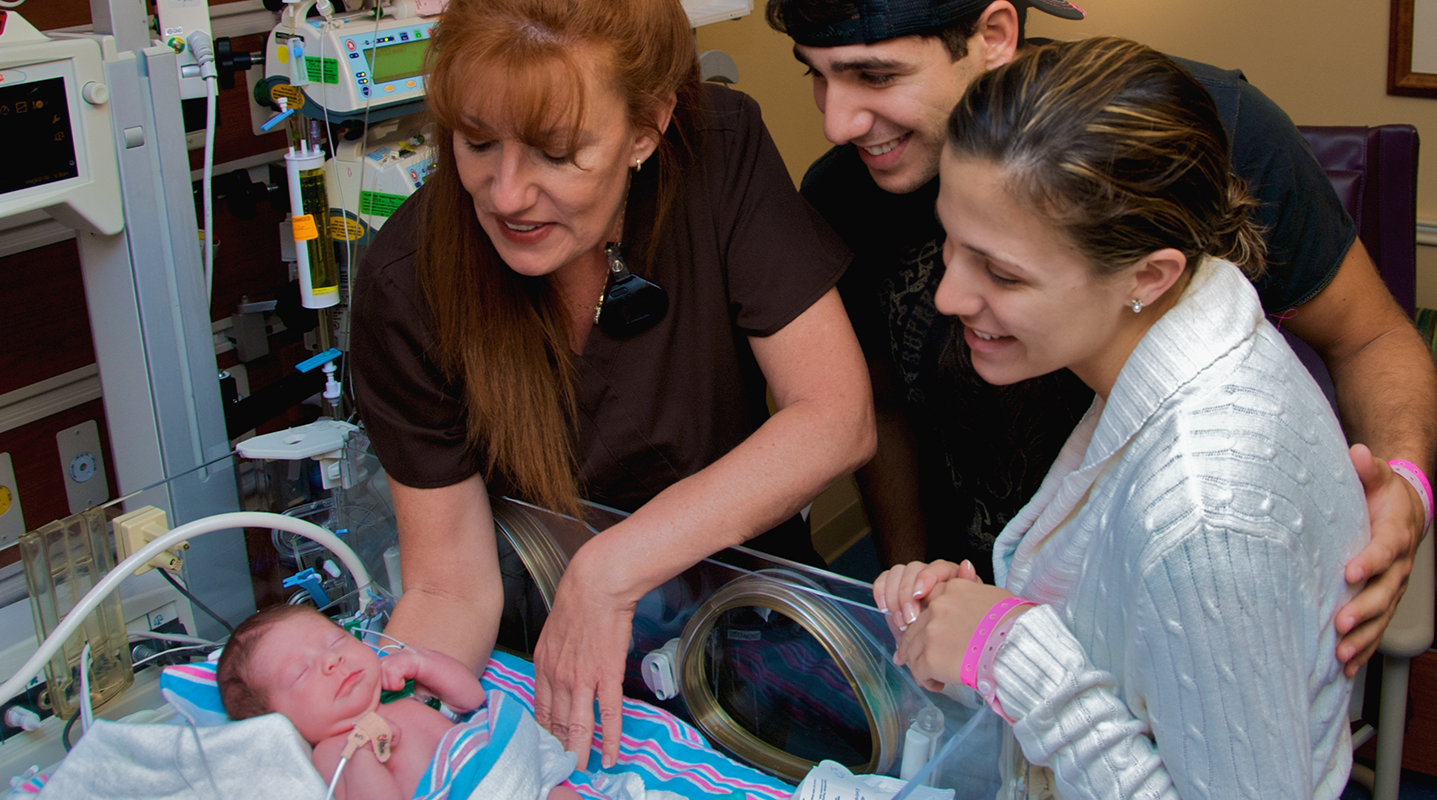What to Expect in the NICU
January 21, 2022

Having a new baby is such an exciting time. But when that baby needs care in the neonatal intensive care unit (NICU), that excitement can be mixed with a lot of stress and fear of the unknown. Knowing what to expect in the NICU can help you feel a little calmer and more in control while your baby receives the care they need.
Download our NICU Parent Education App
Around the Clock Care and Visitation
Your baby will receive care from NICU nurses and neonatologists (doctors who specialize in the care of infants) 24 hours a day. And since the time after your baby’s birth is an important time for bonding, you can visit your baby 24 hours a day, too. Parents are welcome to be in the NICU any time of day or night with your baby.
Even if your baby has many tubes and wires, we encourage you practice skin-to-skin, also called kangaroo care, throughout your baby’s NICU stay. During kangaroo care, you place your baby upright against your bare chest. It is one of your first opportunities to truly bond with your baby and offers many benefits for your baby, such as decreased stress, increased immune protection, and improved breastfeeding.
The NICU waiting area also offers resources like showers and bathrooms. There’s an area where you can eat if you get food from the cafeteria, or other places to eat, so you don’t need to leave the hospital if you don’t want to.
Tour the Wasie Neonatal Intensive Care Unit

A Focus on Infant Safety
Because newborns and especially preterm infants are susceptible to infections, you’ll need to follow important infection control guidelines when visiting the NICU. You’ll need to wash your hands thoroughly before entering the NICU, stay away if you feel sick, and avoid bringing any food or drink into the NICU. Families can eat in the NICU waiting area or the cafeteria.
Lots of Communication
We encourage you to be present during rounds where your baby’s care team will discuss your baby’s progress. If you can’t be here on rounds, you can still call the NICU at any time for an update on your baby and ask any questions you have.
Before you take your baby home, you’ll receive plenty of education from nurses and staff members on how to care for your baby’s needs.
Breastfeeding Support
Most babies in the NICU will not be able to nurse immediately. However, you can still provide your baby with pumped breastmilk. Breast milk has many benefits for babies in the NICU, such as building up their immune system and protecting the health of their intestines. You can borrow a pump for the hospital to pump milk, even if you can’t nurse yet.
If your baby can nurse, lactation consultants can help you learn how. They can give you support as both you and your baby get used to the breastfeeding routine.
Download our NICU Parent Education App for additional information to assist you with feeding your baby in the NICU.
Support for Your Family
It can be hard to adjust to your new family life while your baby is in the NICU. But you can work to make the NICU more home-like for your child by bringing in clothes that have been washed, crib mobiles, books, photos of family members and small toys like a rattle. Even if your baby is not in your physical home, remember that you are their true home. Hearing your voice, seeing you and skin-to-skin contact brings great comfort to your child.
Our caring team at Joe DiMaggio Children’s Hospital Level II and Level III NICU work hard to care for your entire family. We provide comprehensive, advanced care for even the sickest babies, helping them grow stronger.
Download our NICU Parent Education App for more information on what to expect in the NICU.
Milan's NICU Story

